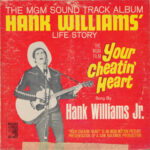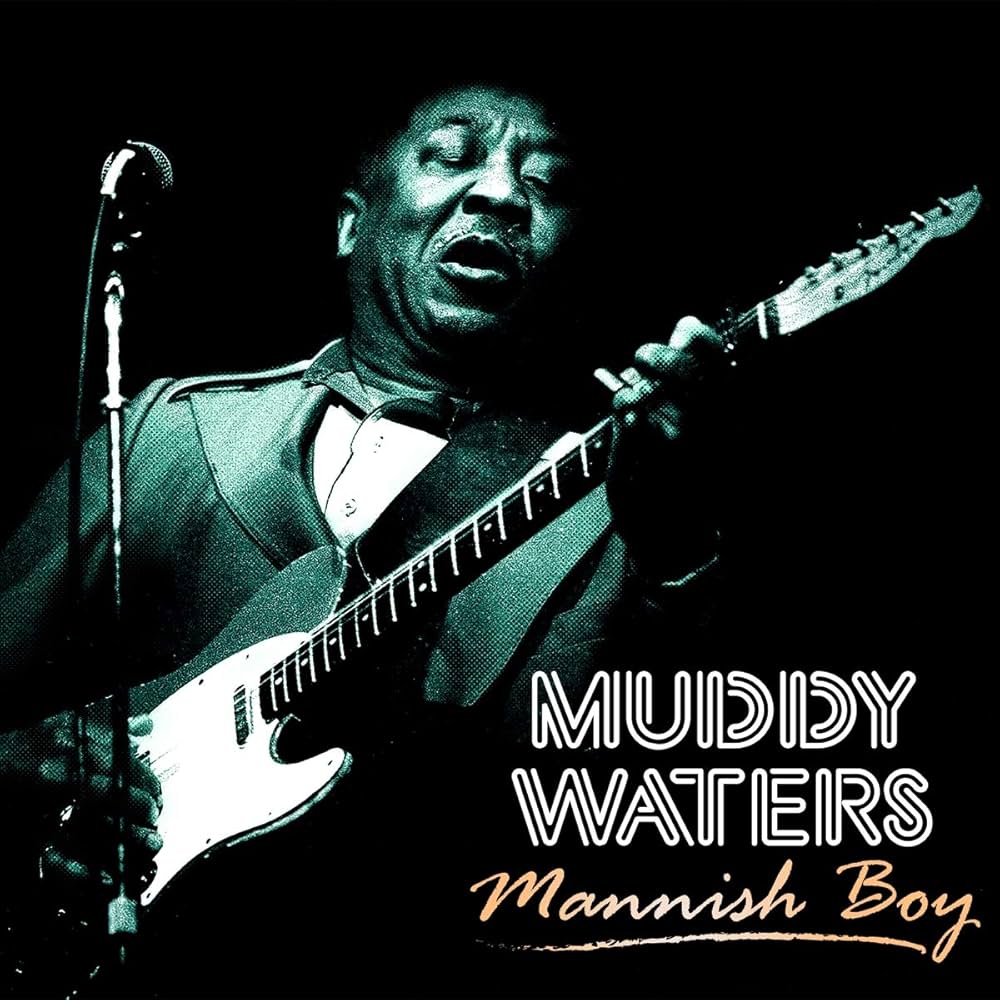 There are songs that define eras, songs that define genres, and songs that define the artists who sing them. Then there is “Your Cheatin’ Heart” by Hank Williams—a song that manages to do all three at once. Released in 1953 after Williams’ tragic and untimely death, “Your Cheatin’ Heart” is more than just one of the most beloved country songs of all time; it is a deeply personal cry of anguish and betrayal, a cultural landmark in the evolution of American music, and an immortal benchmark for how heartache can be transformed into art. Penned by a man whose life was as full of sadness as it was musical genius, the track remains an enduring testament to the power of emotional authenticity in songwriting, resonating across generations and genres.
There are songs that define eras, songs that define genres, and songs that define the artists who sing them. Then there is “Your Cheatin’ Heart” by Hank Williams—a song that manages to do all three at once. Released in 1953 after Williams’ tragic and untimely death, “Your Cheatin’ Heart” is more than just one of the most beloved country songs of all time; it is a deeply personal cry of anguish and betrayal, a cultural landmark in the evolution of American music, and an immortal benchmark for how heartache can be transformed into art. Penned by a man whose life was as full of sadness as it was musical genius, the track remains an enduring testament to the power of emotional authenticity in songwriting, resonating across generations and genres.
The story of “Your Cheatin’ Heart” begins with the tortured genius of Hank Williams himself. Born Hiram King Williams in 1923 in rural Alabama, Hank grew up in poverty, pain, and isolation, with a spinal disorder that caused him constant physical discomfort. But from these hardships sprang his uncanny ability to channel raw emotion into melody and lyric. By the time he was in his twenties, Williams had transformed country music with his poetic phrasing, mournful voice, and uncanny ability to distill universal truths from personal tragedy. “Your Cheatin’ Heart,” written shortly before his death in 1953, is arguably the clearest example of that gift.
Williams wrote the song during a drive with his fiancée Billie Jean Jones. The couple was en route to Shreveport, Louisiana, and somewhere along that winding highway, Hank reportedly turned to her and began to recite the lyrics, inspired by thoughts of his ex-wife Audrey Williams. That genesis—intimate, spontaneous, and emotionally direct—reflects everything that makes the song so timeless. Unlike some of his other hits that leaned into spiritual redemption or honky-tonk exuberance, “Your Cheatin’ Heart” is pure heartache, distilled into verses that feel both specific and universal. Hank turned his personal wounds into music that millions could feel.
Recorded during a final studio session in Nashville on September 23, 1952, just a few months before his death, the song features Williams backed by The Drifting Cowboys and a stellar cast of session musicians. The recording itself carries a ghostly quality; Hank’s voice is laced with the quiet desperation of a man nearing the end. His vocal delivery is measured, mournful, and laced with a kind of resigned bitterness. When he sings, “Your cheatin’ heart will tell on you,” it doesn’t feel like a threat—it feels like prophecy, or even a curse. He doesn’t sound angry; he sounds broken.
Musically, “Your Cheatin’ Heart” is deceptively simple. Its melody is rooted in classic country balladry, with a 4/4 rhythm and a straightforward chord progression. But it is the plaintive steel guitar, the aching fiddle, and most of all Williams’ haunted vocal performance that elevate the track into something nearly mythological. The song drips with atmosphere—dusty roads, barroom regrets, cold dawns after sleepless nights. In just over two and a half minutes, Hank managed to create an entire world of emotional wreckage. That conciseness is part of the song’s genius; it says everything it needs to say without embellishment.
Lyrically, the song is masterclass in economy. It’s not poetic in the traditional sense—it doesn’t rely on metaphor or clever wordplay. Instead, Williams uses directness to his advantage. Every line cuts straight to the heart: “You’ll cry and cry and try to sleep / But sleep won’t come the whole night through.” These aren’t just lyrics—they’re lived experiences, rendered with devastating clarity. The chorus itself is simple but powerful, repeating the song’s title like a verdict that cannot be appealed. That repetition cements the idea: this heartbreak is final, and justice will come—not through revenge, but through the inevitable weight of guilt.
What’s even more striking about “Your Cheatin’ Heart” is the way it helped shape the cultural identity of country music. Before Williams, country was often perceived as regional or parochial. But with songs like this, he elevated it to something that could rival jazz or blues in emotional sophistication and artistic seriousness. “Your Cheatin’ Heart” was released posthumously in January 1953, just weeks after Hank’s death at the age of 29, and it immediately shot to number one on the Billboard Country & Western chart. More than a commercial success, the song became a kind of national mourning ritual. For many fans, it felt like Hank’s final message from beyond the grave—a last call from a man who lived too fast and felt too deeply.
Its influence would ripple outward in profound ways. Elvis Presley, who cited Hank as one of his major inspirations, recorded his own version of “Your Cheatin’ Heart” in 1958. Ray Charles, in his groundbreaking album Modern Sounds in Country and Western Music (1962), reinterpreted the song with gospel and R&B inflections, demonstrating its cross-genre appeal. Charles’s rendition proved that the emotional truth of the song was not bound to twangy guitars or Southern drawls—it was a universal lament that could speak to anyone who had ever been betrayed.
The song also shaped the archetype of the country crooner. Without “Your Cheatin’ Heart,” it’s hard to imagine the careers of George Jones, Patsy Cline, Merle Haggard, or even more modern artists like Alan Jackson and Chris Stapleton. The idea of the lonesome singer, guitar in hand, bleeding out his soul for the world to hear, owes much to the pathos Hank distilled in those verses. In many ways, the song established the emotional vocabulary of modern country music—a genre that continues to revolve around themes of heartbreak, regret, and longing.
Over the decades, “Your Cheatin’ Heart” has been reinterpreted by dozens of artists, each bringing their own flavor while staying true to the song’s emotional core. From LeAnn Rimes’ sultry take to Beck’s minimalist lo-fi cover, the track has proven adaptable and indestructible. Its simplicity is part of its strength. Unlike some songs that rely on period-specific production or lyrical trends, “Your Cheatin’ Heart” thrives in its directness. It doesn’t require interpretation—it demands empathy. And that’s why it continues to resonate.
The mythos surrounding the song has also added to its power. The fact that it was released after Hank’s death, that it may have been inspired by the pain of a failed marriage, that he knew he was on borrowed time—all these elements give it a kind of tragic gravitas. You don’t just hear “Your Cheatin’ Heart”—you feel the ghost of Hank Williams behind it, like a cowboy poet staring down the edge of the world. It’s no surprise that the song has been enshrined in the Grammy Hall of Fame and has been cited by the Library of Congress as one of the most important American recordings of the 20th century.
But perhaps the most remarkable thing about “Your Cheatin’ Heart” is that despite its sadness, it offers a kind of quiet strength. There’s no cathartic explosion, no triumphant resolution. But in its calm certainty—its belief that the truth of betrayal will reveal itself in time—there is dignity. Hank may have been broken, but he wasn’t bitter. He didn’t plead or beg. He simply sang, “Your cheatin’ heart will tell on you,” and let the silence do the rest.
That subtle power is what keeps drawing listeners back. Whether you’re discovering the song for the first time or returning to it after years, it has a way of grabbing you by the gut and refusing to let go. It speaks not just to romantic betrayal, but to the broader human experience of loss, disappointment, and the painful knowledge that some things can’t be fixed. And yet, in that sorrow, there’s a kind of beauty—because it’s real, because it’s honest, and because it came from a man who couldn’t lie, even if he tried.
“Your Cheatin’ Heart” is not just a country song. It is the country song. It represents everything the genre aspires to be: emotionally raw, musically simple but effective, lyrically direct, and undeniably human. In a world where music is often polished and packaged to perfection, Hank’s final masterwork remains gloriously imperfect. It’s a song that aches, and in that ache, it lives forever.


